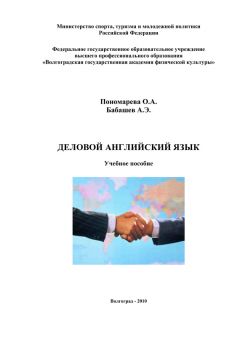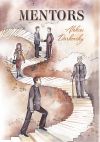Текст книги "Деловой английский язык"

Автор книги: А. Бабашев
Жанр: О бизнесе популярно, Бизнес-Книги
сообщить о неприемлемом содержимом
Текущая страница: 6 (всего у книги 6 страниц)
Conflict Management: «What's the problem? »
In any employment situation some amount of tension, frustration, or even conflict can be considered normal. There are many types of conflict. Some are related to the nature of the work itself. All too often, however, conflicts are related not to the work but rather to various social or even cultural factors. Sometimes conflicts are related to breakdowns in communication, but they can also occur when people understand each other very well. If people do not share the same views of goals, conflicts may be inevitable no matter how well they communicate. At times employees have personality clashes and fail to get along. Although it is best to resolve conflicts whenever possible, many times conflicts cannot be avoided. When you find yourself in a situation where a conflict is unavoidable, it is best to learn to develop strategies to manage it.
Various types of conflict
It is not only what we communicate that is important, but also how we communicate it. In a multi cultural work environment some degree of conflict and misunderstanding is unavoidable. This is so because values, beliefs, and attitudes in one culture are often very different from those held in another. Some cultural conflicts are also caused – because there are different expectations about how people should speak, behave, or make decisions.
Many conflicts can be related to unclear chains of command. Imagine how you might feel if your immediate supervisor had given you one assignment, and a little later his boss, whom you normally do not report to, were to come and ask you to do something else. Actually, in this case, your boss's boss would not have shown proper respect for the normal lines of communication. However, given her position in the organizational hierarchy (two levels above you); you would still have to exercise care in dealing with the conflict in instructions since both bosses would have more authority than you.
Text 14. TIME MANAGEMENT
Efficiency
Efficiency is respected in any society. Efficiency means to work quickly without wasting time or materials. Businesses and factories trying to maximize production and profit are examples of efficiency. In the modern world, efficiency is considered a personal virtue as well. The most efficient employee is considered the most effective. How do you think the concept of efficiency affects the way managers treat employees?
Let's say you receive a personal phone call at work. A friend calls to invite you to a party. When you get such a call on the job, you are expected to keep the interruption as short as possible. In the long run, an inefficient worker will not be promoted and may be criticized. Inefficiency can eventually result in dismissal.
Efficiency is related to the idea of time. Not every culture treats time in the same way. In the United States and many European countries, time is seen as something precious. You might hear the phrase, «Time is money». This phrase reflects a cultural attitude. Henry David Thoreau, American author and philosopher, believed time to be precious in a personal sense. He was wary about exchanging his time for cash. In Walden he cautions us all to make sure that when we sell our time, it is a fair deal. An employer may ask if he has gotten his money worth. By the same token, it is wise to ask whether it has also been worth your while.
Time Management
We are paid for our time, for example, in dollars per hour. But an employer buys more than time. There is a job to be done. An employer is expected to complete it efficiently. After all, we are being paid for every minute on the job.
On the job, we are expected to use time wisely. Yet employees waste time in many ways. Wasting time includes anything that distracts from working – such as personal phone calls and visitors. Leaving earlier, coming late – there are 101 ways to cheat an employer. For this reason, too much socializing, even with co-workers, is usually considered unacceptable on the job in many countries.
Learning better work habits, such as planning a schedule for the day's work, can make a person more effective as an employee – and a more appreciated one.
Wasting Time
In office occupations there are several major time wasters. Fortunately, time wasters are easy to cure once you know them. A messy desk is one. In the modern office, paperwork – including letters, reading materials, and forms of a hundred sorts – stacks up quickly. When paperwork becomes disorganized, time is lost in sorting it out.
Communication skills also influence overall job efficiency. Giving and taking instructions poorly, for example, can end up wasting a tremendous amount of time. If instructions are not understood, a job may be done improperly. Since doing something twice costs time, the value of giving and taking directions well is clear.
Text 15. PUBLIC RELATIONS
PR is often confused with advertising, and sometimes wrongly termed «publicity». PR is wrongly regarded as «free advertising». The two are very different forms of communication, but advertising is likely to be more effective if PR is well carried out.
Briefly, PR aims to create understanding through knowledge; it must be factual, credible and impartial. Advertising has to be persuasive in order to sell and it may be emotional, dramatic and certainly partial. Thus, a basic difference is that in order to succeed PR must be unbiased while advertising has to be biased. PR may be thought to consist only of press relations, or rather media relations since radio and television are also involved.
Modem PR extends into all the functions of commercial and non-commercial, public and private organisations. It deals with matters far removed from marketing and advertising to mention only community, employee, share holder and political relations. A major area of public relations in recent years has been the handling of crisis situations such as strikes, disasters and take over bids. The creation of understanding is best explained by the "PR transfer process".
A company, product or service may be subject to some negative states as hostility, prejudice, apathy, ignorance. PR is concerned with changing them into positive attitudes such as sympathy, acceptance, interest, knowledge. There may be hostility towards a company because its behaviour has been criticised, a product has performed badly, a company personality has received bad publicity, the company is of foreign origin or simply because it is very big. There may also be hostility towards the industry because it is believed to be hazardous or endangers the environment.
Prejudice is a more difficult obstacle to overcome, and is usually long-standing and derived from family, education, ethnic or even geographical influences. Many people are still prejudiced about flying, holidays abroad, foreign foods, computers, etc. Disinterest and apathy is very hard to overcome. People tend to be conservative, set in their ways and unwilling to try new things. They may be apathetic about things that could benefit them such as banking insurance, savings, diet, holidays or different kinds of clothes. In a complex world everyone is ignorant about many things. It is inevitable.
There was a time when most people were ignorant about detergents, air conditioning, video-cassettes, all of which large number of people take for granted today. These are all negative attitudes which PR has to change into positive ones. From what has been described it is seen that PR concerns the total communications of the total organisation. It is not confined to marketing nor is it a form of advertising. Nevertheless, advertising can benefit from PR activity. In fact advertising may well fail because of lack of PR. PR has its own communication techniques and it can contribute to the success of advertising just as it can contribute to good managementemployee relations or good financial relations. The chief benefit lies in the creation of understanding.
SITUATIONS AND ROLE – PLAYS
1. You are a travel agent. A potential client enters your agency. The person thinks of going on a holiday some place. Do you best to advertise Colorado? Try and use the following phrases:
– Welcome to our agency.
– What can I do for you, sir / miss / madam?
* * *
2. You work for a business magazine. Write a brief history of your firm. Make it interesting for the reading public.
* * *
3. You and your partner are starting a business. Discuss London as a possible location.
* * *
4. You and Marry plan to start your business. What will you do? Use the following word combinations:
– to succeed
– to be wary of
– to be opposed to sth
– to run one/s own business
– to and up in failure
– to involve opportunities
– to trust sb
– to be reliable
– to be as good as one’s word
– needless to say
– one would not think of doing sth
– to convince sb (to do sth)
– the plus and minus sides of sth / doing sth
– a well– / badly managed business
– to generate profit
– to make one’s own decisions
– to be / to prove disastrous
– to manage one’s businesses
– to turn out to be
– a white-collar worker
– a blue-collar worker
– to be naïve
– (under the circumstances / in such a case) one does more, not less
– to take risks
– half (of) the time
– a wet blanket
– to risk one’s property
– to build a business from scratch
– a self-made man
– to launch a business / an advertising agency
* * *
5. Paul Stinger has his doubts about leaving his corporate job. His son and / or his daughter encourage him to go ahead and start a new life, that is start a home business. They are quite positive one can do business on the Web. In fact, they are quite enthusiastic about the whole thing.
* * *
6. You are making a report for a weekly TV program Business is Business. You are welcome to interview people, analyze particular cases, speak about business tendencies, etc. these may be your opening remarks:
– To run a successful business, you have to know what to do, how to do it, and when to do it.
– You also have to be strongly motivated.
– You have to have drive and stamina.
– It also takes character, integrity and luck to be a success in business.
– Otherwise there is little hope of being able to bear the odds (+ to win).
– Now let us take a look at what it means.
* * *
7. You are an environmentalist. Your aim is to prevent the environment from being further damaged. You are to make a presentation (report) at a conference on environmental disasters. You intend to speak about Love Canal and its residents. After you complete your report you are asked many questions.
* * *
8. Alex Mann, а representative of the firm, which deal with industrial projects, meet Mr. Robertson who has come to Moscow to negotiate contract.
* * *
9. Boris Sotkin is an engineer of a foreign trade organization. He often goes on business to different European, Asian and African countries. His organization does business with lots of foreign firms. Last month he was in Great Britain. He went there to sign a contract for the purchase of equipment. The talks were very difficult. Mr. Sotkin and the British businessmen discussed prices, terms of delivery, terms of shipment and other business matters. The Supplier agreed to reduce the price. During his trip Sotkin visited different plants where he saw the equipment in operation. He signed a good contract. Boris was lucky with the weather. It was warm and it didn't rain. He was pleased with the trip.
* * *
10. X-rayed and got on board the plane. The hostess gave Ivanov an arrival card to fill in. He wrote in block letters his full name, home address and the purpose of his visit. The sign «Stop smoking. Fasten seat belts» appeared and the plane took off. Although it flew at high speed, the passengers on board the plane felt comfortable. Five and a half hours later the plane landed at airport in Berlin. Ivanov is going through the customs control at airport in Berlin.
* * *
11. You have just been introduced to a business colleague, and need to make him or her feel at home. What kind of questions could you ask?
* * *
12. You: – Could I speak with Mr. Born?
Secretary: – Yes, but he’s on another line. Would you like to hold?
Respond as follows:
– leave a message
– leave your phone number
– say you wish to hold the line
– ask how long he’ll be.
* * *
13. Call Ms. Marker’s office and introduce yourself, then ask for information about her company, ABC Trading.
* * *
14. You are calling your hotel (the Ritz) to ask if there are any messages left for you.
* * *
15. What would you say if you dialled the wrong number?
* * *
16. What would you say if someone else dialled your number incorrectly?
* * *
17. You have to answer the phone for a colleague at work. What is the best way to answer?
* * *
18. Call the Four Seasons Restaurant and make a reservation for three people for a business dinner at 8:00 p.m.
* * *
19. Tell the secretary you do not wish to hold the line any longer; you will call back later.
* * *
20. Call Harly Company. Give them your name, title, company, and whom you are calling (the vice president of sales).
* * *
21. You answer the phone at someone else’s office and you take a message for colleague from the caller. What would you say?
* * *
22. Tell the secretary you are returning Mr. Halliday’s call and would like to speak with him.
* * *
23. Put a polite end to a business conversation.
* * *
24. You do not understand a particular word or expression. Ask for it to be explained to you.
* * *
25. Make a restaurant reservation for tomorrow – business lunch for five people.
* * *
26. The business lunch is one type of meeting. Try to get to know your visitors and potential clients or to work with business associates in a more relaxed atmosphere.
* * *
27. You organize your business lunch. Make the transition between small talk and business. Close the business lunch.
* * *
28. You are at a business lunch. Introduce your guests and exchange cards. Tell your partners about your company, about yourself, about your city. End the meeting even though people are still discussing business tactfully.
* * *
29. Make a reservation for four people at a restaurant for business lunch, at 12:00 noon, and make sure it is for a quiet table.
* * *
30. Give a short presentation related to your own business and answer your guest’s questions.
* * *
31. You make hotel reservation in England. You will have a non-smoking single room including breakfast from the 15th to the 25th of March. Ask about rates and discounts, hotel rates, breakfast.
Ask how far the hotel is from the airport. Ask what type of transportation is available from the airport. Ask if there were any messages for you. Make a dinner reservation.
* * *
32. You are buying airlines tickets. You would like a non-stop flight from London to Moscow leaving April 15th.
* * *
33. You are buying airlines tickets. Tell the operator you wish to book a flight from Clearwater Beach Florida to Roma. Ask about ticket prices, restrictions on tickets. Ask what aircraft is used, about special meals. Ask where to pick up the ticket.
* * *
34. At the airport. Ask your guest about his or her flight, his or her baggage, if he or she wants to have a drink, if he or she needs to use the rest room.
* * *
35. You are in London. You go to the Hotel Ritz where you made a reservation for a single room, non-smoking, under the name of Jerry Walkers. Your conversation with the clerk at the hotel.
* * *
36. You are at the hotel. Ask the front desk to change your bed or give you a board to put under it, because the bed is too soft. Complain to the front desk about the noisy neighbours. Ask the front desk for more towels and hangers.
* * *
37. You would like to take a tour of the city, but don’t know where to go. Ask for a recommendation.
* * *
38. When making business phone calls, you need to give specific information to the receptionist or secretary who answers the company phone. First, give your name, title, and company. Second, give the name of the person you are calling, and the reason for your call.
* * *
39. When you start a business conversation on the phone, it is a good idea to introduce yourself and give the reason for your call, even if you have given that information to the receptionist. Sometimes the person you are calling is busy or on another phone line. If this happens, the receptionist may ask if you would like to hold the line.
* * *
40. You are seeking a new job. You have already sent your CV to the company N. The director of this company invited you for the interview. Express your experience, qualities and skills.
BUSINESS WRITING PRACTICE
Определите к какому виду делового документа (Inquiry, Offer, Order, Complaint, Apology, Memo, CV, Contract) относятся представленные ниже отрывки :
1.

2.

3.


4.

5.

6.


7.

8.

9.


10.

11.

12.

13.

14.

15.


16.

17.

18.


19.

20.

ПРИЛОЖЕНИЕ
Основные фразы и сокращения, используемые в электронных сообщениях:


Правообладателям!
Это произведение, предположительно, находится в статусе 'public domain'. Если это не так и размещение материала нарушает чьи-либо права, то сообщите нам об этом.








































